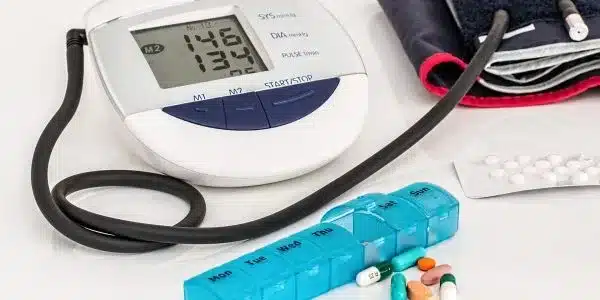As the saying goes, “An ounce of prevention is worth a pound of cure.” This is a very accurate description of preventive medicine. Many people say they are perfectly healthy and have no medical diagnoses because they haven’t been to the doctor for years or decades, and therefore have never been diagnosed with any medical condition. Often, a simple, routine doctor’s visit that includes screening tests can prevent complications from untreated, silent disease later on. Too many times, patients are not diagnosed until it’s too late and end up in the hospital, often with a poor outcome in the end.
A very common, painless and easily screened condition is high blood pressure, or hypertension. It is a silent disease because people don’t feel pain or get hurt from uncontrolled hypertension until it is too late. Over the years, untreated high blood pressure can cause early hardening of the arteries, called atherosclerosis, leading to premature strokes or heart attacks. It can also cause the heart to overwork and strain to pump blood, resulting in a condition called congestive heart failure. Hypertension at its end stages can cause an aneurysm, an artery that can bulge, expand and burst. The signs of uncontrolled hypertension in its late stages can include headache, dizziness, chest pain and shortness of breath. The cost of a preventive visit to catch high blood pressure can save much suffering, time and money down the road.
Diabetes is another silent, painless disease millions of Americans don’t know they have. In fact, uncontrolled diabetes can lead to numbness in the feet and less sensation and pain. But that lack of sensation can lead to foot wounds and infections, which can result in a complicated diabetic wound that doesn’t heal. Many of those chronic wounds eventually end up in amputations. Uncontrolled diabetes also affects the eyes, a condition called retinopathy, which leads to blindness, as well as kidney problems, called nephropathy, which can result in total kidney failure and dialysis. Like uncontrolled high blood pressure, uncontrolled diabetes also increases the risk of stroke and heart attack. A simple test called a hemoglobin A1C can test for diabetes and prevent many of these complications. Often, diabetics are not diagnosed until they are hospitalized for one of the complications of uncontrolled diabetes.
Other common screening tests include a lipid panel for cholesterol. High cholesterol is a risk factor for strokes and heart attacks, along with high blood pressure. Triglycerides are a part of the lipid panel. Some people’s high triglycerides affect the pancreas and leads to a condition called pancreatitis, which usually requires hospitalization. In addition to eating a healthy diet and exercising, medications can lower or control cholesterol and triglycerides. Overall, preventive screenings are an important aspect of your healthcare, both to keep you healthy and decrease the cost of care. Many insurances and health plans include preventive care.
